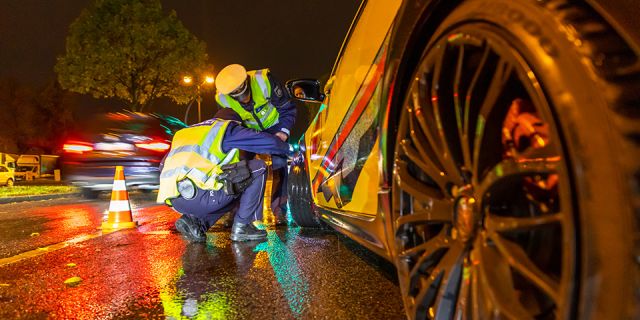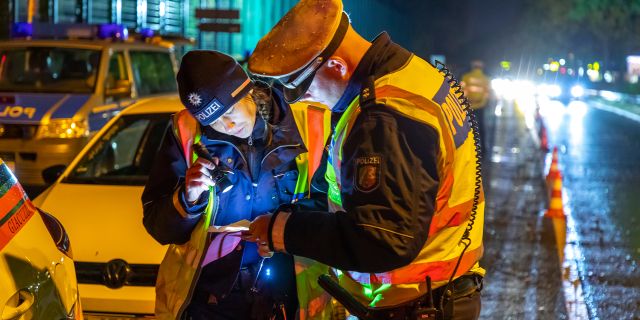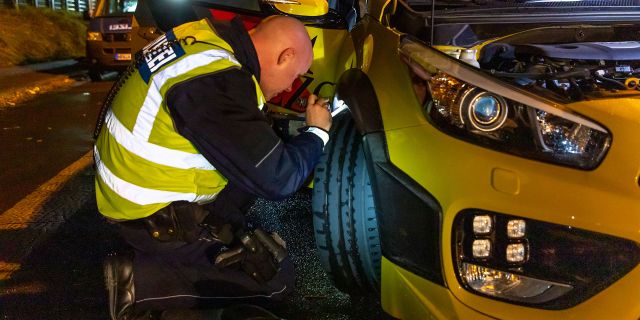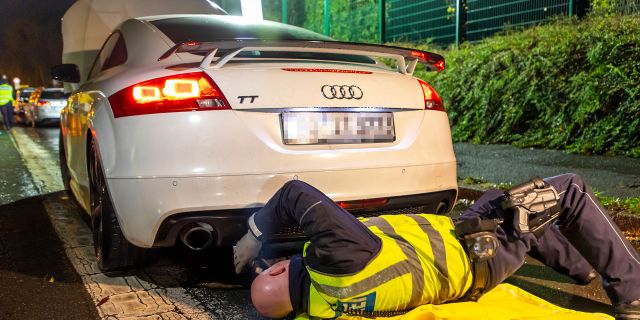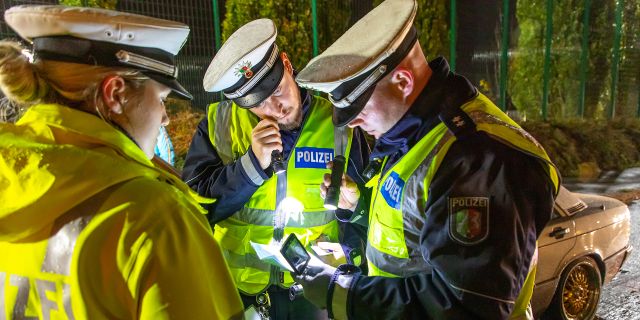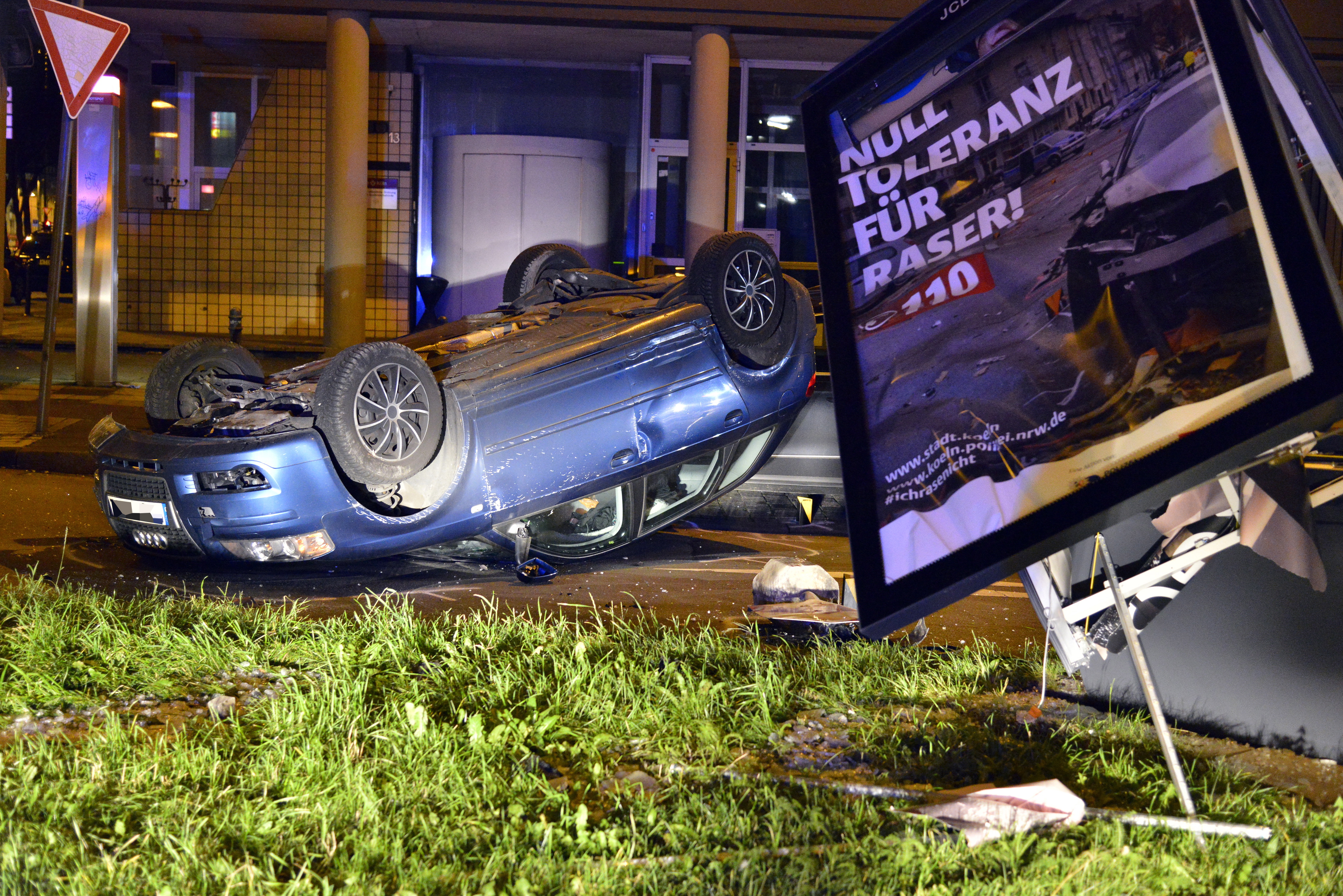In recent years, racers and tuners have repeatedly felt they had to rename the statutory Good Friday holiday "Carfriday" in order to race and show off their illegally modified cars. They risk life and limb on the roads and disturb local residents with unbearable noise, even at night.
They disregard traffic rules, are too loud and, above all, too fast. The illegal tuning, posing and speeding scene has increasingly become the focus of the NRW police in recent years due to its reckless and dangerous behavior. Illegal motor vehicle and acceleration races in particular have already led to several serious injuries and deaths. These races are therefore of particular importance: all possible means of combating prolific offenders in road traffic are to be exhausted. This also includes regular tuning checks, during which suspicious vehicles are put through their paces. One of the NRW police's tuning experts is Pascal Weise from Dortmund police headquarters. He has been part of the special traffic group there since 2017. In this interview, he talks about his work - and why the traffic service is anything but boring.
Why did you choose the traffic service - and then the special tuning unit too?
Pascal Weise: I was familiar with the traffic service and had already been involved in almost all cooperative tuning checks in the past. I decided to make the switch in 2017. It was a new challenge. The subject areas are interesting and, above all, you can really get to grips with a topic. The general conditions are advantageous here. When you start an inspection, you see it through to the end. As a rule, you can take the necessary time and check everything properly. I've been involved in tuning since 2005 - both professionally and privately. The subject simply interests me. What's more: At that time, there were changes to the road traffic licensing regulations regarding fines. Suddenly, an expired operating license was only subject to a maximum fine of 50 euros. And in some cases for violations that could seriously endanger road safety. I finde that is not acceptable.
How did you prepare for the job in terms of content?
Wise: Firstly, through the in-service training. There is a very good seminar on the subject of tuning at the State Office for Training, Further Training and Personnel Matters of the NRW Police. But I've also done a lot of work on the subject privately. What options are there for digital tuning, for example, for adapting the software of engine control units? What can be reprogrammed on a vehicle? In order to have a comparison at all, you need to know what a standard vehicle looks like and you need to know what you can change on it. Only then can you check whether everything is still legally compliant.
What do you enjoy most about the job?
Weise: The inspections are a challenge. You'll never experience someone jumping out at you during an inspection and saying, "Here's what I've changed on my car." It's always an investigation and a close look. If you then demonstrate expertise, many people are surprised. They often assume that they will get away with tampering with the vehicle. But they don't.
What is mainly manipulated?
Weise: Basically, the motto is: lower, harder, louder. This means that the vehicles are lowered, a different wheel/tyre combination is used and the exhaust system is manipulated.
How do the affected vehicle owners react to the checks?
Weise: It varies greatly. It ranges from understanding and the realization that they have done something wrong to complete incomprehension. And vehicle owners often try to explain to me how I should do my job and what I should be doing instead of carrying out such an inspection. Road safety work is an essential part of the police's job.
Suppose a vehicle that has been checked is no longer roadworthy due to tuning. Do you talk people into it?
Wise: Absolutely. Even if it's not easy. After all, most of them are very young people, our target group is between 18 and 25 years old. The ability to assess their own actions and all their consequences is sometimes still somewhat limited at this age. They simply don't think about it enough. But they need to understand that the illegal conversion of a vehicle can be the cause of an accident. Apart from the fact that I am putting myself and others at risk, they should also think about settling claims later on. The certainty that I have injured or even killed another person is very stressful in itself. But that's not all. I also have to deal with recourse claims from the insurance company. In serious accidents, the car is always sent to an expert. If changes are found on the car that can be proven to have caused the accident, the insurance company will not pay. The defendant can then expect to have extreme financial problems afterwards. Many people are completely unaware of this. I also make it clear to vehicle owners that it is not easy for the police to break the news of a death to family members. We are all human beings. And something like that also affects you as a police officer. No matter how much you emphasize professionalism. This thrill for a brief moment is sometimes paid for with human lives. I try to make that clear. Fun is limited by the law. We all have to treat each other with consideration. And I personally finde that this is not just a requirement that arises from the law, but should be a matter of course for people.
Are there any vehicles that you can still remember being checked?
Weise: Two examples come to mind. Both times were at a major tuning inspection. One was a Golf 7 GTI. A local tuner had modified the performance of the car to such an extent that even the expert got out of the car after the test drive and said: "This vehicle is absolutely uncontrollable." The car had no grip at all at the front. Almost 400 hp on the front axle. The problem with such a change in performance is that you can't just convert the engine, the braking system and the chassis. You have to adapt all electronic aids such as ESP and ASR. But these systems are then no longer able to function properly at all because they were not designed for this performance.
Another case was an Audi from Berlin. The car had been completely rebuilt: A relatively old car model with a new engine. Then there were various modifications to the chassis, the wheel and tire combination, the exhaust system - all sorts of things had been changed. A real tinkering shop, as they like to say. You would have had to have individual approval for every change. This vehicle no longer corresponded at all to what it had once been.
Are there rules of thumb for recognizing illegal tuning even as a non-expert?
Wise: So-called Airride suspensions, for example. If they are virtually resting with the body on the ground when parked, this is already an indication that this suspension is not permitted in this position. Tinted tail lights are also a classic. If you open the trunk lid and see that the lights have been painted or otherwise processed to make them darker. This is also not permitted. What's more, if it almost hurts your ears when you drive past, i.e. at around 130 decibels, then something is usually wrong. There are hardly any vehicles that are allowed to be that loud.
What qualities should you have if you want to work in the traffic service?
Wise: You should clearly have an affinity with the subject of traffic and also have a certain basic technical understanding. Then you should enjoy carrying out inspections completely independently and from start to finish. And, of course, it is very important that you are willing to expand your knowledge of topics and areas that you may not yet be familiar with. This is sometimes complex, but also very interesting. Especially as you can then pass on your specialist knowledge to colleagues.
And how do you think you can prepare specifically for the field of tuning?
Weise: The first thing to do is to look for the seminar on tuning in the LAFP NRW training calendar and attend it. It's a really good place to start. There is also a tuning guide that was developed by a department head at LAFP NRW. Another guide developed by a colleague outside NRW is also very helpful. It explains the function of the various assemblies and parts and how changes affect them. It's very well done. I have also put together my own recommendations for action to give colleagues more certainty. For example, I explained how certain manipulations can be recognized with simple measures and actions.
In your opinion, the transport service is misjudged?
Weise: I think the transport service deserves more credit. Especially when you consider the level of expertise required to even recognize an administrative offence or criminal offence. The traffic service really is anything but boring.
